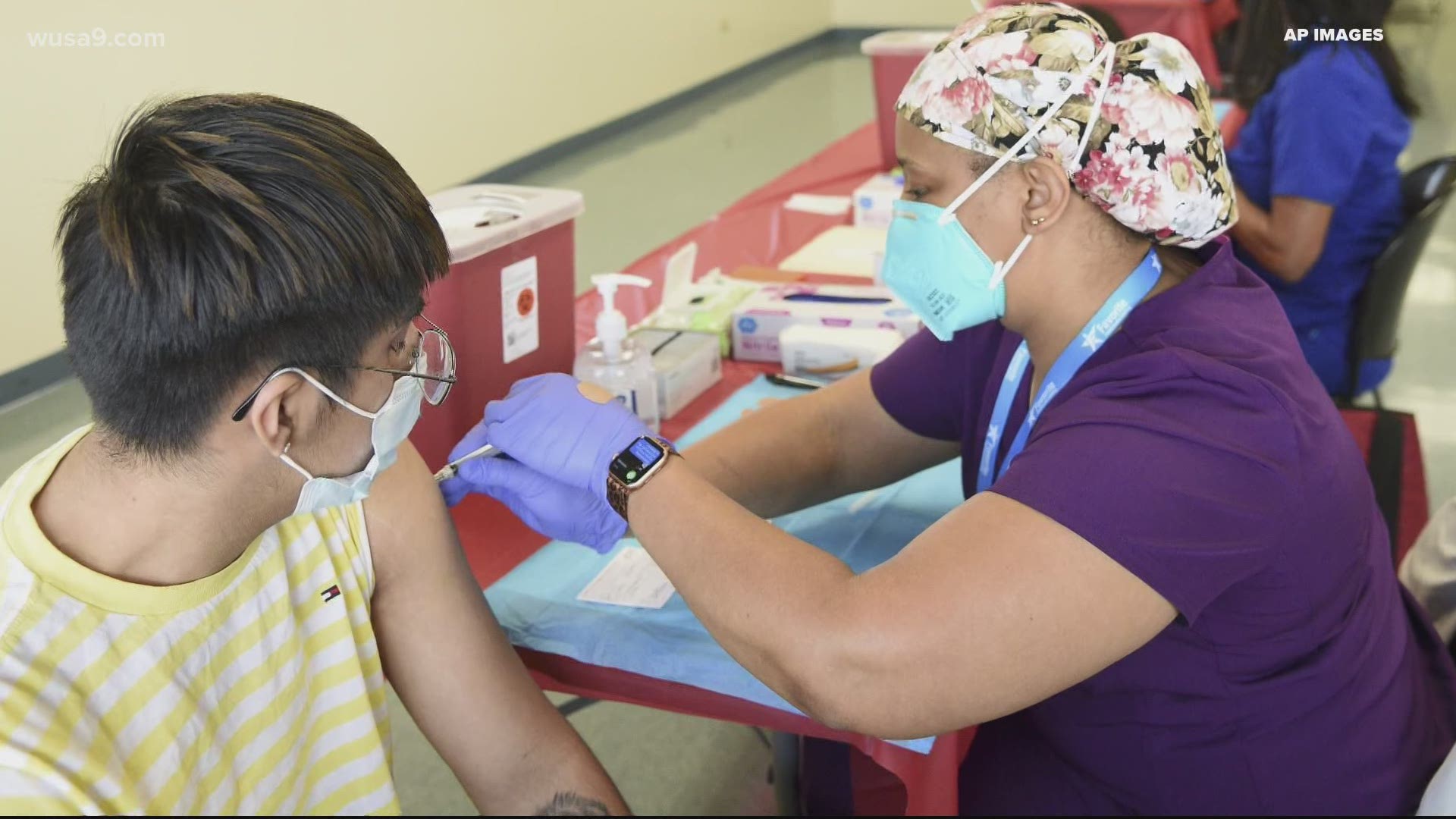WASHINGTON — In the United States, more than 112 million people have received at least one dose of the vaccine. That is around one-third of the country.
The reactions to the vaccines range from nothing to moderate flu-like symptoms. Regardless of the reaction, experts report that the vaccines activate the immune system to the same level.
But, what does your reaction say about how you would have fared with the virus?
Question:
Does your reaction to the COVID-19 vaccines reveal how you would have coped with the coronavirus?
Answer:
At this point, there is no relationship between your vaccine reaction and how you would have fared with the actual coronavirus.
Our Sources:
Dr. William Moss, a vaccines expert from Johns Hopkins University and Dr. William Schaffner an infectious diseases expert from Vanderbilt University.
What We Found:
“People will say, ‘Well if I didn't get a reaction, does that mean the vaccine didn't work?’ and the answer is, no,” Dr. Moss said.
“We cannot assess the exuberance of the side effects with the degree of protection that you get,” Dr. Schaffner said. “That's fortunate.”
It looks like no matter how you reacted to the vaccine, you have the same amount of immunity.
But does that reaction reveal how you would have done getting the actual coronavirus?
With the virus, symptoms also ranged from nothing to severe cases. The latest numbers in the United States show more than 500,000 people have died.
“I don't think that there's any relationship between your reaction to the vaccine and what would have happened to you had you gotten infected with the virus,” Dr. Schaffner said.
“My short answer is no implications for protective efficacy,” Dr. Moss said. “No implications for how your body would respond if you got infected with the actual SARS-CoV-2."
As far as our experts can tell, there is no relationship between your reaction to the vaccine and how the virus could have affected you.

